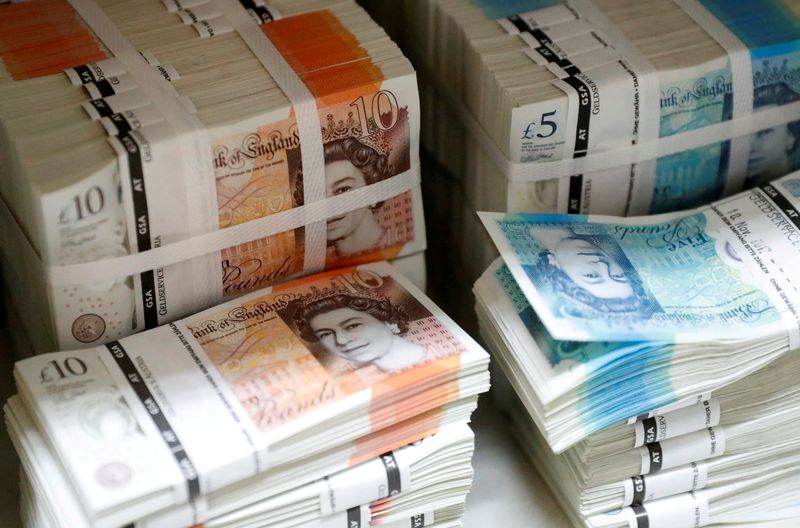LONDON (Reuters) -Sterling gained versus the euro on Monday as the prospect of more sanctions against Russia knocked confidence in the euro zone economy, while continued bets on a rapid pace of interest rate rises from the Bank of England also supported the pound.
Speeches by BoE Governor Andrew Bailey and his deputy on Monday failed to move the pound. Jon Cunliffe, the deputy, said he did not think expectations of persistently high inflation were becoming embedded in the thinking of companies and consumers - and therefore rate hikes to counter that may not be needed.
Cunliffe is a known dove and was the only BoE policymaker to vote against the central bank's March 16 decision to raise the Bank Rate to 0.75% from 0.5%. After he spoke on Monday money markets maintained their pricing of a 25 basis-point rate hike in May to 1%.
The main action in trading of the British currency therefore came from a move lower in the euro, as investors sold out of it after Western powers said new sanctions were needed against Russia.
Against the euro, sterling strengthened as much as 0.7% to 83.70 pence, a one-week high and some way from the three-month lows of 85.12 pence touched on Thursday.
Versus the dollar the pound rose 0.1% to $1.3122, keeping it within a tight trading range held since mid-February.

"Despite much focus on the heaviest cost of living rise since British records began (1950s), the market still prices the BoE Bank Rate at 2.20% at the December meeting later this year. That pricing of the BoE cycle is likely keeping GBP relatively well bid," ING analysts wrote, although they predicted that the pound could fall to around $1.25-$1.28 in the coming months.
This week there is little in the way of important UK economic data, and markets will be focused on any talk about monetary policy, as well as how financial markets and risk sentiment hold up amid the war in Ukraine.